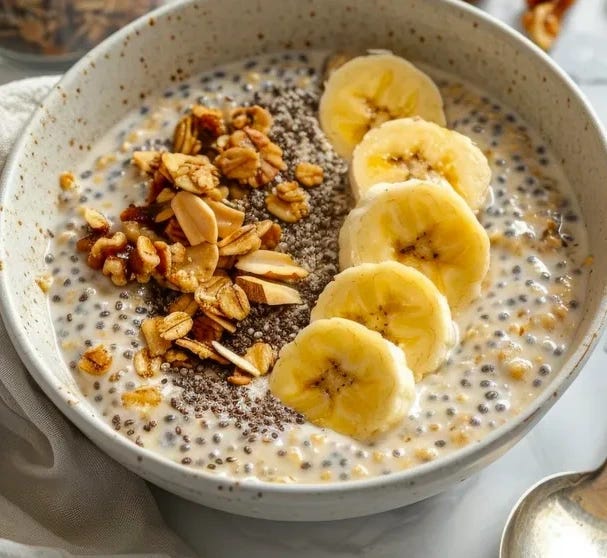Why we shouldn't sleep
zzz...
Over the past couple of years, I struggled with insomnia.
I often struggled to fall asleep at night, lying awake in bed (for hours sometimes) even if I went to bed at the same time as the nights before. When and if I did manage to fall asleep, I would wake up multiple times. Eventually, I’d wake up before sufficient hours of sleep, unable to resume sleep. Some days I just woke up too anxious, other days I couldn't discern any particular reason.
On most days that I slept poorly, I’d feel groggy and tired, suffer a constant headache, and would struggle to focus. I’ve had to cancel evening plans or even daytime meetings on multiple occasions.
As these became more and more common, the obsessive problem solver in me went on high alert and consumed as much I could on the science of good sleep. I binged on what good sleep looks like, and its cognitive and physiological effects; books, podcasts, and articles, …I absorbed whatever I could.
I experimented with wind-down rituals like lavender diffusers, valerian, and camomile tea, listening to calming music, podcasts, progressive muscle relaxation, blue light filtering glasses, limiting my caffeine (including cocoa intake in products), sleep monitoring apps, and adjusting my exercise timings. I did calming evening wind-down rituals before sleep time.
Each of them seemed to work sometimes and then lose effectiveness and often didn't solve the issue around "waking up too soon".
I tried Melatonin, low-dose Mirtazapine, Reishi mushrooms, Magnesium supplements, the list goes on - they worked great... for a while.
Eventually, I tried CBT-I with Louise, an amazing sleep specialist ( who I affectionately refer to as my "sleep mama") - incredibly kind, responsive, yet firm in cleaning my sleep habits and rituals.
The CBT-I approach (as per my amateur understanding), involves steps dissociating the link between non-sleep activities and my bed, reducing time spent not sleeping in bed, reframing thought patterns around sleep, intentionally depriving sleep in the beginning to build up sleep drive, etc.
Part of CBT-I involved going to a different space and doing something relaxing but not too engaging, if I’m awake for more than 15 minutes. I would usually choose to read a boring book, unload my dishwasher, make myself a snack, or switch between these tasks until I felt sleepy again.

I was very fortunate to have Louise available by my side calmly re-assuring me of the process, educating me of the steps, and the science behind it, and most importantly being so available and kind to me in what seemed like a desperate situation for me.
Unfortunately, I did hit a roadblock with CBT-I where the anxiety around sticking to the rules disrupted my sleep.
That said, CBT-I is still something I would recommend exploring with an expert like Louise if you are struggling with sleep.
I recalled that for most of my twenties, I slept only about 6-7 hours. I functioned well, exercised in the evenings, consumed coffee, and had chocolates any time of the day. These also included periods in my life when I was on sertraline (an antidepressant belonging to the SSRI class) with a known side effect of insomnia.
So what had changed?
I recall briefly reading a book called Set it and Forget it.
Connecting the dots I realised why I was insomniac - I was never chasing sleep before. In fact, I have arrogantly bragged before how I only need 6 hours of sleep. And often I avoided going to bed and tried to stay up as late as possible and do all the things I wanted to accomplish.
Back then, I
never knew SSRIs had insomnia as a side effect.
had not read Why We Sleep by Matt Walker or listened to his talks.
had not heard of sleep monitoring apps and devices.
had no clue that long-term insomnia can cause poor mental and physical performance, and eventually Alzheimers'.
I had mounted sleep on a pedestal and pinpointed poor sleep as the root cause of a lot of my issues, including anxiety, headaches, tiredness, etc. Ironically, this made me even more anxious about sleep and kept me awake. It had become a self-fulfilling prophecy.
But my definition of good sleep was very narrow - turns out the quantity of sleep is just one among a myriad of factors contributing to sleep quality, which in itself is just a tiny subset of things that could affect daily function. And it’s quite difficult to self-estimate the number of hours we sleep and the sleep cycles we go through in a night.
Tying my energy and daily function to my perception of how I slept, made me feel terrible the days I thought I didn’t sleep well and vice versa. The Expectation Effect probably explained all my new symptoms after a poor sleep night.
Returning to Set it and Forget It - it turns out, Daniel, the author, had a lot of content out there and a gentler different approach to solving insomnia. In essence, "befriend wakefulness". By not chasing sleep, I learned to take the pressure off of needing to sleep, and the worries around its impacts. Turns out sleep came naturally to me.
He does have extensively informative, easy-to-use guidance, and material around how to put this into practice, what to expect, and a wonderfully support community. So, instead of trying to unjustly summarize it here, I'll point to his work directly here
Back to the present, I still have days where I feel I've slept poorly. I still wake up multiple times in the night. And I still have nights where I'm unable to go back to sleep.
But I don't feel worried about sleep or its effects most of these times and turns out I end up having a pretty good day most of these days. I do however rely on coffee, yoga nidras, and workload adjustments on some of these days. However, I rarely have any headaches, anxiety, or even tiredness most of the time.
In fact, as I write this, I just came back from 4 days of travel including a 14-hour trip from Kochi to London, and have slept less than 6 hours for all four nights and yet all these days I was just as productive as any other.
These nights, I go to bed trying not to fall asleep - inviting wakefulness as much as possible. I still have anxiety around sleep but my wind-down ritual is just to remind myself that wakefulness is good and I can use the extra wake time to do more enjoyable activities. Just as I am learning to reframe anxiety as a friend, I’m doing the same with wakefulness.
Magically, I now fall asleep pretty fast these nights. And wake up refreshed even after having an hour or more of interruption in between.
By trying not to control sleep, by caring a little bit less, it just became another part of life.
Some resources I’ve found helpful in my journey
My goal with this post has been to share my ongoing journey with what I now consider as occasional sleep disturbance and no longer insomnia. It’s a work in progress, so there will likely be a few more posts to follow.
If anything here resonated with you or you know someone who might find this interesting, I’d love to connect!
Disclaimer: The above is purely based on my personal experience and does not constitute medical advice. Always seek the advice of your physician or qualified healthcare provider before making any medical decisions




This resonates so deeply and is written beautifully!! So agree that once we stop caring about sleep, it becomes much easier to sleep. I used to feel so frustrated and anxious when I kept waking up in the middle of the night, and that frustration / anxiety would ironically keep me up for the rest of the night. But once I found out that nighttime wakings are actually normal and don’t necessarily signify poor sleep - I was able to relax and go back to sleep much more easily!
Man, this reaonates on so, so many levels !
Thank you for sharing your experience